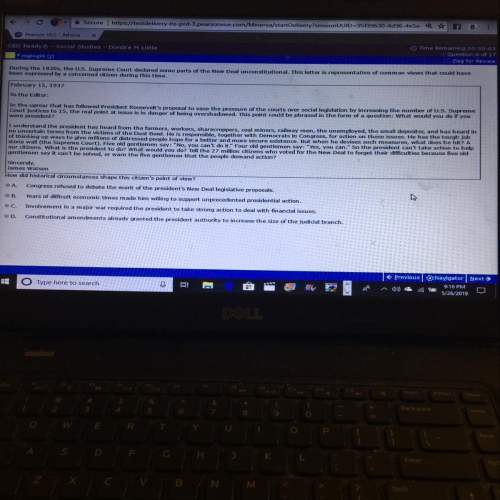10 (LC)
Civil Disobedience
Part 2
Thoreau's ideas had a profound effect on a man named...

History, 04.02.2021 01:50 Nowellkwaku
10 (LC)
Civil Disobedience
Part 2
Thoreau's ideas had a profound effect on a man named Gandhi. Gandhi, was a leader in India who worked to end British rule. He led India to independence and inspired many to non violent
forms of protest and resistance. He fought to end poverty, worked to expand women's right to vote, and built bridges between ethnic and religious groups. Like Thoreau, he lived simply.
owned very little, and ate a vegetarian diet. In India, Gandhi's form of protest was called the "non-cooperation movement." He urged Indians to boycott British education systems and leave
government jobs. The movement was very popular, and in part to stop its spread, the British controlled government arrested him. After a few years, he was released and became
active in
politics again. He inspired many to follow him on marches to protest various taxes. On one such march, thousands followed him 240 miles over 24 days to the sea to protest a salt tax. This
march set the example of non-violent resistance to the government that others in the country followed. Eventually India won independence from Britain, in large part because of Gandhi work.
Gandhi's model of resistance and reform was creative, appealing, and successful. As a result, Dr. Martin Luther King looked to Gandhi when the time came to find a way to resist segregation in the South. The lunch
counter protests, famous for the passive response to anger, and even violence, aimed to end the separation enforced by laws in some regions of the South. King also organized walks, marches, and bus rides that
were meant to bring attention to the Issues facing African Americans. These forms of protest were directly modeled on Gandhi's, but King took them straight to the source of oppression. Where Gandhi's protests
created awareness and built momentum, King's protests were in the face of great hatred and fear. The passive, non-violent protests were ultimately effective, mainly because the passive response to violence cast
the opposition as brutes. However, change came slowly and at the cost of many lives, King remained committed to peaceful protest, however, until his death. King learned from Gandhi, expanding on what worked,
applying old techniques to a new problem. Gandhi owed his philosophy, in part, to a New England poet who loved the woods.
Based on the bolded paragraph, which line shows the success of Gandhi work? (5 points)
Eventually India won Independence from Britain, in large part because of Gandhi work.
After a few years, he was released and became active in politics again
O thousands followed him 240 miles over 2 days to the sea to protesta salt tax
Like Thoreau, he lived simply, owned very little, and ate a vegetarian diet.

Answers: 3


Another question on History

History, 21.06.2019 23:30
Which statement can be said to be true after examining this map? (1 point) christianity remained popular in egypt after 400 ad. christianity was the only religion in the roman empire until 476 ad. christianity expanded in the roman empire after 325 ad. christianity did not expand beyond the boundaries of the roman empire by 476 ad
Answers: 1


History, 22.06.2019 05:00
Which statement about submarine use in world war i is true? the allies never found a way to counter german submarine warfare. germany’s use of submarines affected the united states’ decision to enter the war. only the germans used submarines in world war i.
Answers: 1

History, 22.06.2019 07:00
Compare and contrast hobbes’ and locke’s views of human nature and the role government should play
Answers: 1
You know the right answer?
Questions



Arts, 19.11.2020 21:40

Mathematics, 19.11.2020 21:40

Arts, 19.11.2020 21:40



Mathematics, 19.11.2020 21:40

Mathematics, 19.11.2020 21:40

English, 19.11.2020 21:40




Mathematics, 19.11.2020 21:40

Social Studies, 19.11.2020 21:40


Mathematics, 19.11.2020 21:40


Mathematics, 19.11.2020 21:40




